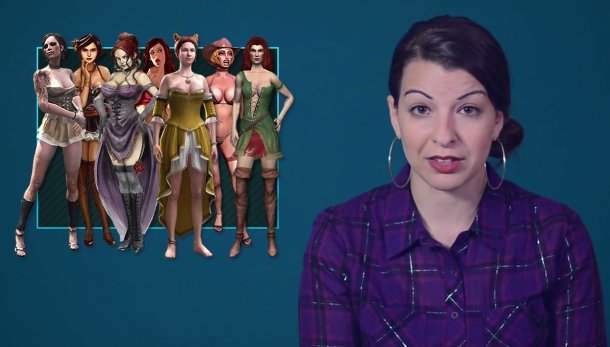Tropes vs Women in Video Games creator driven from her home by online threats and abuse

The latest Tropes vs Women in Video Games video continues the analysis of the objectification of non-playable female characters—this time with an eye to exposing common traits of violence against sexualised NPCs. Depressingly, its release prompted a torrent of misogynistic abuse made against creator Anita Sarkeesian, her family and her supporters. In their attempts to prove that sexism in video gaming isn't a problem, Sarkeesian's harassers posted threats that compelled her to alert authorities and leave her home to stay with friends.
"Some very scary threats have just been made against me and my family," Sarkeesian tweeted a couple of nights ago. This was followed by the following:
I'm safe. Authorities have been notified. Staying with friends tonight. I'm not giving up. But this harassment of women in tech must stop! August 27, 2014
Last night, Sarkeesian even shared extremely upsetting examples of that abuse. The misogynistic rants are filled with the type of sexualised violence that only serves to reinforce the video's point.
There have been positives responses, too. The video has spread far and wide, picking up support from many industry figures. Tim Schafer and Naughty Dog's Neil Druckmann both implored people to watch it, as did Joss Whedon .
As for the harassment, it's both bizarre and appalling. It speaks to a critical immaturity; an inability to accept that problematic elements don't invalidate great games. These are not binary judgements, and Sarkeesian's examples don't exist in a vacuum. I'd argue that Red Dead Redemption's Bonnie MacFarlane is one of the few examples of well-written woman in a Rockstar game. That stands true in spite of this video's entirely justified inclusion of its faults.
The Tropes vs Women in Video Games series isn't a full-stop designed to close critical discussion. It's a blunt-force tool that highlights a lazy and troubling cliche—one that developers too often fall back on. It's the beginning of the conversation, and something that should be thought about, discussed and internalised. It's the start of a process that could lead to better, more surprising, more well-rounded games. But that becomes so much harder when the people involved are afraid to speak out. That's exactly what Sarkeesian's harassers want. It's to her credit that she's not letting it happen.
You can see the first part of the Women as Background Decoration below, and the full Feminist Frequency back catalogue through this link .
Keep up to date with the most important stories and the best deals, as picked by the PC Gamer team.

Phil has been writing for PC Gamer for nearly a decade, starting out as a freelance writer covering everything from free games to MMOs. He eventually joined full-time as a news writer, before moving to the magazine to review immersive sims, RPGs and Hitman games. Now he leads PC Gamer's UK team, but still sometimes finds the time to write about his ongoing obsessions with Destiny 2, GTA Online and Apex Legends. When he's not levelling up battle passes, he's checking out the latest tactics game or dipping back into Guild Wars 2. He's largely responsible for the whole Tub Geralt thing, but still isn't sorry.

